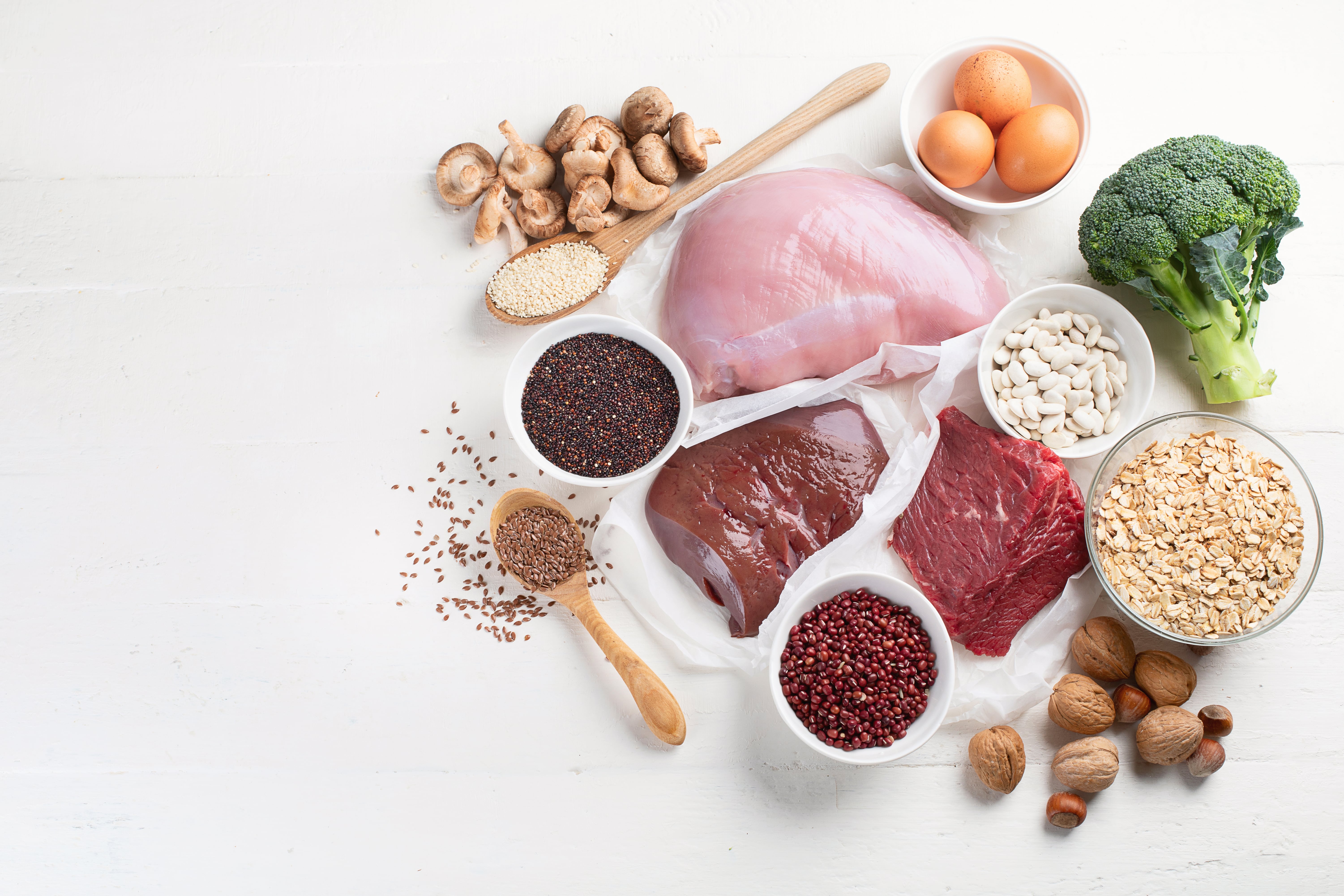Many women suffer from Anemia without even knowing it. We have read in Edition 1 of the blog on how a heavy period can cause iron deficiency Anemia. In this Edition 2 of the blog, you can read on the diagnosis of Anemia, treatments, and preventative measures.
How is Iron Deficiency Anemia diagnosed?
Your doctor will take a medical history followed by a physical examination of symptoms. Some of the tests that can confirm an iron deficiency anemia are:
- Complete blood count
- Ferritin test
These two tests usually reveal whether you have enough Hemoglobin and produce red blood cells.
Treatment for Anemia due to heavy period:
Heavy bleeding during your menstrual flow can cause iron-deficiency Anemia. Your doctor can prescribe hormonal birth control or iron supplements to treat this condition. He/ she will recommend including more iron-rich foods in your diet. In some cases, surgery may be required like:
- uterine artery embolization
- ultrasound surgery to shrink fibroids
- endometrial ablation
How to prevent Anemia from heavy periods?
Treating Anemia will require you to make some diet and lifestyle changes. You can take these preventative measures against Anemia:
- Increase your intake of iron-rich foods like red meat, organ meat, spinach, legumes, chicken, eggs, turkey, and millets.
- You can eat more foods that will increase iron absorption. Eat iron-rich foods combined with Vitamin C-rich foods like eggs, broccoli, & oranges, eggs & bell pepper scramble, chicken, and kale soup.
- Do not drink tea or coffee with meals as it can cause a lack of iron absorption. Instead, take tea or coffee at a different time.
- Do not take calcium supplements along with an iron-rich meal. Calcium can hinder your body’s ability to absorb iron. If you take calcium supplements, talk to your healthcare provider regarding it.
- Always talk to your doctor before taking any iron supplements because it can have side effects.
What are some other causes of Anemia?
Consider the other causes that can cause Anemia like:
- If you are not getting enough iron from your diet or your body isn’t absorbing iron properly (Crohn’s disease), it can lead to iron-deficiency anemia.
- If you have stomach ulcers, colon polyps, gastritis, etc., it can cause internal bleeding leading to Anemia.
- You are pregnant, and you are not getting enough folic acid and iron from your diet.
- If you have low levels of vitamin B12, your body’s ability to make red blood cells is impaired. If you are a vegan or vegetarian, you are at a greater risk of developing Vitamin B12 deficiency leading to Anemia.
- If you are suffering from any bone marrow disease like leukemia, it can impact the production of red blood cells.
- Some genetic disorders like sickle cell disease and thalassemia can cause Anemia.
- Certain chronic conditions like kidney disease, autoimmune conditions, and HIV can lead to Anemia.
In most cases, Anemia can be treated with diet, supplements, and lifestyle changes. You should always consult a doctor for correct diagnosis and treatment plan for Anemia due to heavy periods.
FAQ’s
2. How can heavy periods lead to anemia?
Heavy menstrual bleeding (menorrhagia) increases blood loss, depleting iron stores and potentially causing iron-deficiency anemia. Symptoms may include fatigue, weakness, dizziness, and pale skin. Managing menstrual flow and iron intake is crucial to prevent anemia.
3. What treatments are available for anemia caused by heavy periods?
Treatment options include hormonal birth control to regulate menstrual flow, iron supplements to replenish iron levels, and dietary adjustments to increase iron intake. In severe cases, medical procedures like uterine artery embolization, ultrasound surgery to shrink fibroids, or endometrial ablation may be considered.
4. How can I prevent anemia from heavy periods?
Preventive measures involve increasing the intake of iron-rich foods such as red meat, spinach, legumes, and eggs. Combining iron-rich foods with vitamin C-rich foods enhances iron absorption. Avoid consuming tea, coffee, or calcium supplements with meals, as they can hinder iron absorption.
5. What are other causes of anemia besides heavy periods?
Other causes include insufficient dietary iron, poor iron absorption due to conditions like Crohn’s disease, internal bleeding from ulcers or polyps, pregnancy without adequate iron and folic acid intake, vitamin B12 deficiency (common in vegans), bone marrow diseases, and chronic conditions like kidney disease or HIV.
6. Why is vitamin B12 important in preventing anemia?
Vitamin B12 is essential for red blood cell production. A deficiency can impair this process, leading to anemia. Vegetarians and vegans are at higher risk due to limited dietary sources of B12. Supplementation or fortified foods may be necessary for those at risk.
7. Can lifestyle changes help manage anemia?
Yes, lifestyle modifications such as a balanced diet rich in iron and vitamins, regular exercise to improve circulation, and stress management can support overall health and help manage anemia. Consulting a healthcare provider for personalized advice is recommended.
8. When should I consult a doctor about anemia?
Consult a doctor if you experience symptoms like persistent fatigue, dizziness, shortness of breath, or pale skin, especially if you have heavy periods. Early diagnosis and treatment are crucial to prevent complications associated with anemia.
9. Are there any risks associated with iron supplements?
Iron supplements can cause side effects like constipation, nausea, or stomach discomfort. It's important to take them under medical supervision, as excessive iron intake can be harmful. Your doctor will recommend the appropriate dosage based on your needs.
10. How can I monitor my iron levels?
Regular blood tests, including complete blood count and ferritin levels, can help monitor iron levels. If you have heavy periods or symptoms of anemia, discuss with your healthcare provider to determine the appropriate testing and monitoring schedule.

